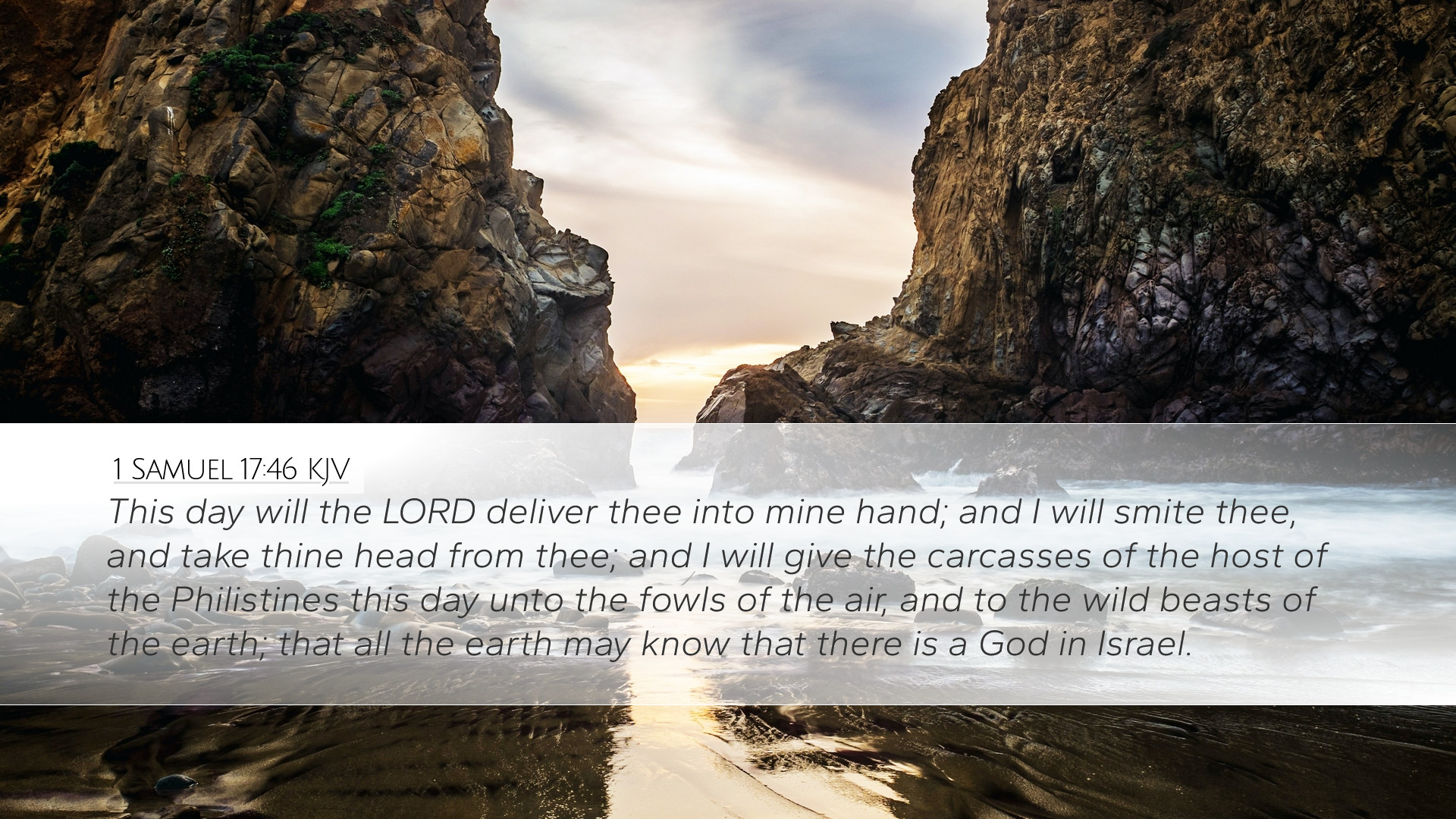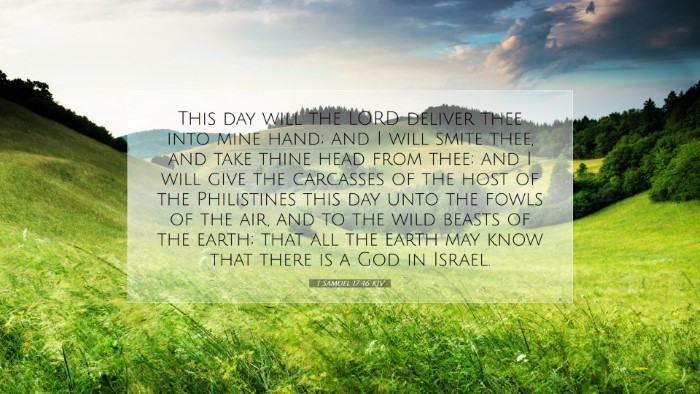Commentary on 1 Samuel 17:46
The verse 1 Samuel 17:46 captures a climactic moment in the famous encounter between David and Goliath, underscoring themes of faith, divine intervention, and the victory of the humble over the proud. Here we explore insights derived from public domain commentaries by Matthew Henry, Albert Barnes, and Adam Clarke.
Verse Context
1 Samuel 17:46 states: “This day the Lord will deliver you into my hand, and I will strike you down and cut off your head. And I will give the dead bodies of the hosts of the Philistines this day to the birds of the air and to the wild beasts of the earth, that all the earth may know that there is a God in Israel.” This declaration is not merely a battle cry; it is a profound statement of faith and purpose.
Historical Background
The context of this verse is critical as it portrays the tension between Israel and the Philistines. Goliath represents the might and intimidation of the Philistine army, while David, a shepherd boy, embodies faith in God amid overwhelming odds. This battle is emblematic of the greater spiritual conflict between the secular forces of the world and the divine purpose of God.
Theological Insights
-
Faith in Action:
David’s assertion that “the Lord will deliver you into my hand” illustrates the essence of true faith. Matthew Henry emphasizes that true belief translates into confident action. David's faith is not passive; it propels him into the battle, embodying the conviction that God will deliver on His promises.
-
Divine Sovereignty:
Albert Barnes comments that David's confidence stems from a clear understanding of God's sovereignty. The bold proclamation of victory reflects David’s recognition that the battle does not ultimately belong to man but to God. This divine sovereignty over the affairs of mankind reassures believers that no circumstance is beyond God’s control.
-
God's Glory:
Both Henry and Clarke highlight that the ultimate purpose of David’s victory over Goliath is to demonstrate the greatness of God. David’s declaration that “that all the earth may know that there is a God in Israel” emphasizes that the challenges Christians face are opportunities for the manifestations of God's power. Believers are called to live in a way that reflects this understanding.
David's Role as an Archetype
David serves as a type of Christ in this narrative. Just as David confronted Goliath with faith and courage, Christ faced the ultimate foe—sin and death—with the same assurance of divine support. Adam Clarke elaborates on this by drawing parallels between David's slaying of Goliath and Christ's victory over Satan, underscoring the salvific nature of David's faith as a precursor to the redemptive acts of Jesus.
Practical Application for Contemporary Believers
-
Facing Giant Problems:
This passage encourages believers to trust in God when facing seemingly insurmountable challenges. Just as David approached Goliath with confidence in God's capability, contemporary believers are reminded that through faith, challenges can be faced with courage.
-
Proclaiming God's Power:
David's bold declaration serves as a challenge for believers today to proclaim God’s greatness in their lives. Just as David sought to glorify God through his victory, so too should Christians live so that their lives witness to God’s power and sovereignty.
-
Utilizing God-Given Strengths:
David did not rely on conventional weaponry but rather on the tools he was familiar with, exemplifying the importance of recognizing and utilizing one’s God-given gifts and experiences in ministry and daily life.
Conclusion
In conclusion, 1 Samuel 17:46 not only recounts a historic battle but serves as a profound theological reminder of God's sovereignty, the power of faith, and the need for believers to testify of God’s greatness in their lives. As interpreted by Henry, Barnes, and Clarke, this verse stands as a bridge connecting ancient narrative with contemporary faith practice, inviting all believers—pastors, students, theologians, and scholars—to approach their own 'Goliaths' with the same confidence and trust in God that David did.


